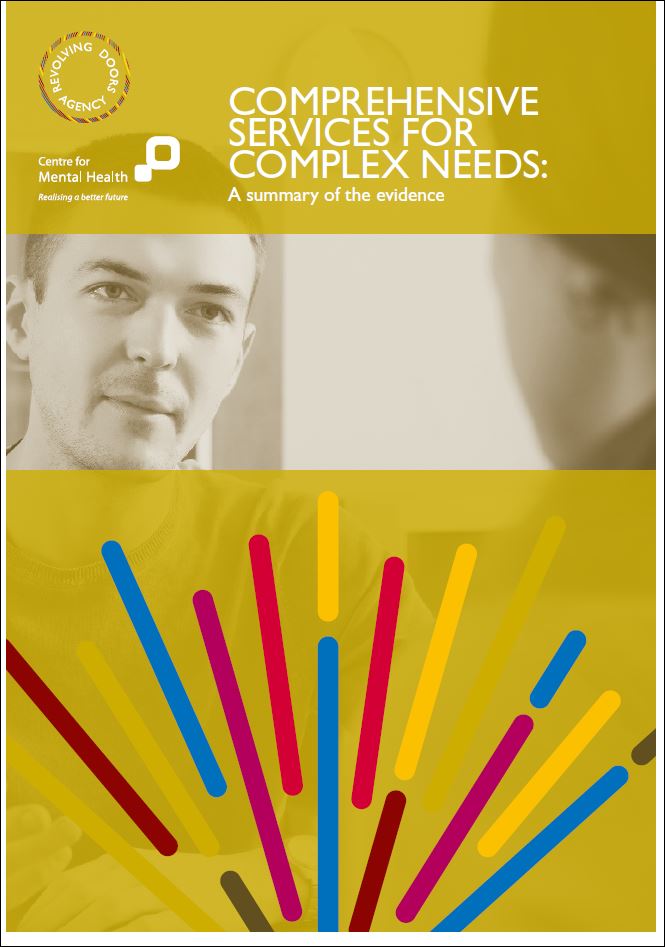Getting out of the revolving door
Regular readers will know that I’m a big fan of the briefings produced by the Revolving Doors Agency on best practice when working with people with complex needs.
I’ve found two recent publications really valuable for the way they present clear findings from both literature reviews and input from commissioners and practitioners:
This post is a straight steal from the PbR and complex needs report which sets out 10 principles for effective services working with people with complex needs. These principles are based on a combination of desistance and recovery theory as well as Revolving Doors’ research and development work on the ground. For what it’s worth, this list reflects many of the lessons I’ve learnt in over 100 evaluations of schemes working with people most of whom have been offenders and/or drug misusers and/or had housing/employment/health & mental health problems.
Here are the 10 principles for effective complex needs services:
- ‘Someone on your side’: Opportunity to build consistent, positive and trusting relationships.
- Assertive and persistent: An assertive and persistent approach to engagement that does not give up on people. Continuous and consistent support over a prolonged period, responding positively and constructively to setbacks.
- Tailored: A personalised approach which addresses the full gambit of an individuals’ needs and is culturally sensitive to particular needs of specific groups including women, people of black and minority ethnic backgrounds and young adults.
- Building on strengths: Supports the client to recognise and develop personal strengths, recognising more than a ‘bundle of needs and problems’.
- Coordinated and seamless: Understands and links with other services, pulls services together around the client, helps clients to access and coordinate support through brokerage and advocacy. Ensures continuous support across key transitions, avoiding gaps in care.
- Flexible and responsive: Flexible approach to support and an ability to react quickly in a crisis.
- ‘No wrong door’: If a service cannot provide support, they take responsibility for connecting the client with someone who can.
- Trauma informed: Understands the emotional and behavioural impact of traumatic childhood and life experiences on clients and vicarious trauma on staff, avoids re-traumatisation, facilitates reflective practice, builds resilience and supports recovery.
- Coproduced: Designed in partnership with service users.
- Strategically supported: Has the buy-in of senior, strategic stakeholders.
I can only think of one additional principle – Adequately Resourced.
Please add any suggestions of your own via the comments section below.



The worker needs to believe the client has an equal right to the support that appears to be needed, as any other person on the planet and be prepared to accept that the client cannot understand your belief in her having equal rights with you or any member of your own family.
That I think is the key to eventually gaining a constructive relationship with folk who may seem extremely objectionable. It cannot be acted, it must be believed – if you as a worker do not believe it you are probably in the wrong job.
This kind of work will be sadly sidelined for profit in the crc when people are passed around between services. No consistancy
Totally agree with these ten principles however we (jobs friends houses cic) do all these as a business (social enterprise) and not as a service. We have come across too many services that just pick and choose which of these they want to do hence creating a business model in which we accomplish these and not having to rely on the ‘whim’ of commissioners whether to fund us or not!
Hello I’m a 58 year old male, sofa surfing for over 20years, lived with my daughter, with my grandchildren, social services got involved, had a sycholagy test done sorry for the spelling, this all happened in 2017, I was diagnosed with mild learning disability from when I was a child, and complex needs, & well below average in my age group, grandchildren went into foster care , don’t really know why, me & my daughter fell out, so I had to move out from Bristol drove to Southend on sea, slept in my car, church, kitchen, one room in a house, know I have my own place, recently took my sychological report to the job centre and they told me to get a sick note so I got one for six months , by my complex needs advisor , advised to get in contact with personal independent’s payments and I did I spoke to them came back all zeros so advised to do it again at this point I just wanted to give up on it, but I had to do it again it came back I had 2 , so now this is where I’m at , at the moment, just a rough back ground but believe me it’s a very challenging condition.